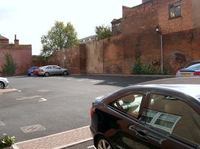

Owners must pay service charges for the upkeep of communal areas and for communal services. Charges are calculated according to each owner’s share of the development and not whether they’re temporary or permanent residents.
For example, 20 apartments of equal size in an apartment block would each pay 5 per cent of the community fees. General charges cover such services as caretaking, upkeep of the garden and surrounds, swimming pool maintenance and refuse collection. In addition to general charges, there may also be special charges for collective services and common equipment such as lifts, central heating and hot water, which may be divided according to the share of the utility allocated to each apartment.

Check the level of general and special charges before buying an apartment. If you’re buying a resale apartment, ask to see a copy of the service charges for previous years and the minutes of the last annual general meeting, as owners may be ‘economical with the truth’ when stating service charges, particularly if they’re high. If you’re buying a holiday apartment that will be vacant for long periods (particularly in winter), don’t buy in an apartment block where heating and/or hot water charges are shared, or you will be subsidising your co-owners’ heating and hot water.
If necessary, owners can be assessed an additional amount to make up any shortfall of funds for maintenance or repairs. You should check the condition of the common areas (including all amenities) in an old development and whether any major maintenance or capital expense is planned for which you could be assessed. Beware of bargain apartments in buildings requiring a lot of maintenance work or refurbishment (note that properties in ski resorts usually require more maintenance than those in coastal areas). However, under French law, disclosure of impending expenditure must be made to prospective buyers before they sign a contract. Owners’ meetings can become rather heated when finances are discussed, particularly when assessments are being made to finance capital expenditure.
Fees vary considerably and can be high for luxury developments with a range of amenities such as a swimming pool and tennis courts, e.g. €1,000 per year for a two-room apartment and double this for a four-room property. However, high fees aren’t necessarily a negative point (assuming you can afford them), provided the community is well managed and maintained. The value of a community property depends to a large extent on how well the development is maintained and managed. Since January 2002, all copropriétaires have been required to pay service charges quarterly, the amount being adjusted at the end of the year when the annual accounts have been approved by the committee. Owners also have the right to make payments from a separate bank account.
The managing agent of a copropriété should send the notary handling the sale a statement of the seller’s account regarding the payment of community fees and any work in progress but not yet completed (for which owners are liable). The vendor should obtain a Certificat de l’Article 20 stating that he doesn’t owe any money to the copropriété; otherwise the notary must withhold payment to cover any fees due.
The management of a copropriété is regulated by French law, and the rules and regulations are contained in a document called the Règlement de Copropriété. If you don’t understand it, you should have it explained or get it translated. All decisions relating to the management and upkeep of a community development are decided by a general committee (syndicat des copropriétaires) presided over by a manager (gérant/syndic).
He’s responsible for the management, efficient daily running and the apportioning of charges relating to the building, e.g. insurance, repairs and maintenance. The manager bills individual owners for service charges and management fees. The committee must hold a meeting at least once a year to approve a budget, discuss other matters of importance such as capital expenditure and, if necessary, appoint a new manager. Owners must be given 15 days’ notice by registered letter of the annual meeting or a special meeting and the opportunity to add items to the agenda no later than six days before the meeting. All decisions are made by a majority vote. Owners who are unable to attend may vote by proxy.
Tip: if you’re planning to buy a community property, it’s important to ensure that it’s well managed and that there aren’t any major problems. If there are, you could be liable to contribute towards the cost of repairs, which could run into many thousands of euros.
The rules and regulations (règlement de copropriété) governing a community development allow owners to run their community in accordance with the wishes of the majority, while at the same time safeguarding the rights of the minority. Restrictions usually include such things as noise levels, the keeping of pets, renting, exterior decoration and plants (e.g. the placement of shrubs), rubbish disposal, the use of swimming pools and other recreational facilities, parking, business or professional use, and the hanging of laundry. Note that French law doesn’t allow anything to be forbidden without good reason (for example, pets may be forbidden only if they cause a nuisance to other owners), so any such restrictions may be unenforceable. You should also check whether there are any rules regarding short or long-term rentals or leaving a property unoccupied for any length of time. If necessary, discuss any restrictions with residents.

A garage or private parking space isn’t usually included in the price when you buy a new apartment or townhouse in France, although secure parking is usually available at an additional cost, possibly in an underground garage. Modern detached homes usually have a basement (sous-sol) that can be used as a garage and cellar. Smaller homes usually have a single garage, while larger properties may have garaging for up to four cars. Parking isn’t usually a problem when buying an old home in a rural area, although there may not be a purpose-built garage.
When buying an apartment or townhouse in a new development, a lock-up garage usually costs an additional €10,000 or €15,000 and even a reserved parking space can cost €3,000 to €5,000. Note that the cost of a garage or parking space isn’t usually recouped when selling, although it makes a property more attractive. The cost of parking is an important consideration when buying in a town or resort in France, particularly if you have a number of cars. It may be possible to rent a garage or parking space, although this can be prohibitively expensive in cities. Bear in mind that in a large development the nearest parking area may be some distance from your home. This may be an important factor, particularly if you aren’t up to carrying heavy shopping hundreds of metres to your home and possibly up several flights of stairs.
Tip: Without a private garage or parking space, parking can be a nightmare, especially in cities or during the peak season in popular resorts. Free on-street parking may be difficult or impossible to find in cities and large towns, and in any case be suitable only for a wreck.
A lock-up garage is important in areas with a high incidence of car theft and theft from cars (e.g. most cities and popular resorts) and is also useful to protect your car from climatic extremes such as ice, snow and intense heat.
This article is an extract from Buying a home in France. Click here to get a copy now.